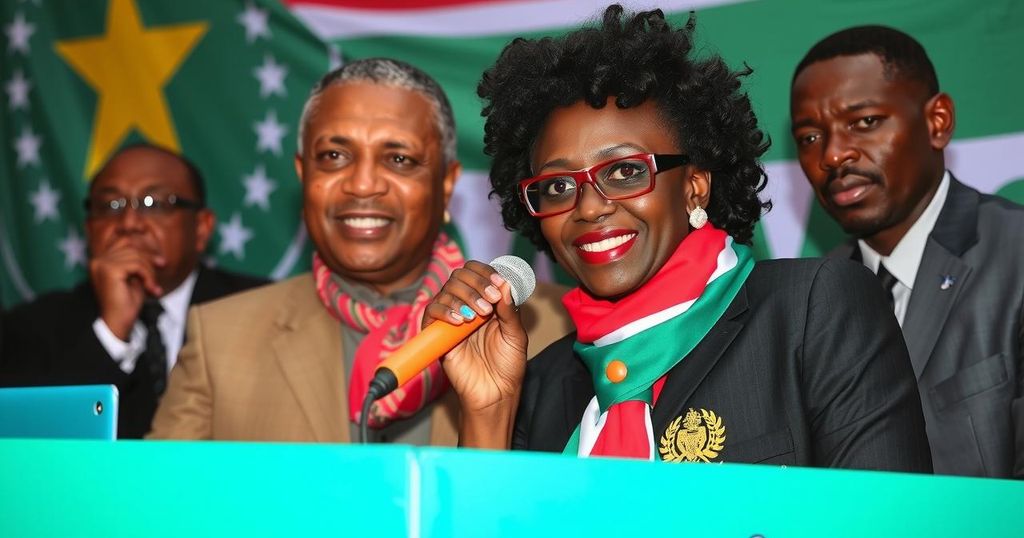Namibia’s recent elections highlighted a notable shift in political power, as the ruling party Swapo retained its position but with diminished electoral strength. While Netumbo Nandi-Ndaitwah became the first female president, significant challenges arose from logistical issues and opposition claims. This trend reflects a broader pattern in sub-Saharan Africa, where many governing parties are experiencing losses due to economic discontent and rising demands for accountability.
Namibia recently held elections that, while resulting in the ruling party, Swapo, retaining power, revealed a notable decrease in its electoral dominance. Netumbo Nandi-Ndaitwah emerged as the country’s first female president with 57% of the votes; however, the legitimacy of the outcome is contested due to logistical issues and alleged irregularities. The unfolding situation is reflective of a broader trend observed across sub-Saharan Africa in 2024, where incumbent governments have faced significant electoral setbacks amid popular discontent driven by economic challenges and growing anti-corruption sentiment.
The year has posed enormous challenges for several African governments, often resulting in losses or diminished parliamentary representation. For instance, the Botswana Democratic Party experienced a historic loss, reducing their parliamentary seats from 38 to a mere 4, while in Mauritius, a governing coalition was similarly decimated in favor of opposition parties. Similarly, Senegal witnessed a remarkable political shift when opposition leaders, previously jailed, secured substantial victories despite a backdrop of governmental repression.
Economic grievances have played a pivotal role in these electoral outcomes, with citizens expressing dissatisfaction regarding high living costs exacerbated by inflation. Broad public frustration has ignited protests in countries like Kenya, signaling a growing demand for accountable governance. Furthermore, the success of opposition parties can be attributed to their ability to mobilize voters effectively, combine resources, and ensure election integrity through vigilance, contrasting sharply with past practices seen in other nations.
This unprecedented wave of shifts in political power speaks volumes about the resilience of democracy in Africa, revealing an electorate that is increasingly intolerant of corruption and governmental failures. Analysts suggest that many of these patterns are likely to continue into future elections, promising further disruptions to long-standing political structures.
The electoral landscape in sub-Saharan Africa has shifted dramatically in 2024, marked by a series of elections that have seen established governing parties struggle to maintain their foothold. The challenges faced by these incumbents stem from an amalgamation of economic downturn, rising public intolerance of corruption, and the emergence of rapidly mobilizing opposition factions. Namibia, with the recently concluded elections for Swapo, epitomizes this trend, as it illustrates the complexities of electoral democracy amid evolving political dynamics on the continent.
In conclusion, the electoral shifts witnessed in Namibia and across sub-Saharan Africa illustrate significant trends indicative of a broader desire for accountable governance and political integrity. The results reveal not only waning support for long-standing incumbencies but also a newfound vigor among opposition parties, fueled by public dissatisfaction with economic conditions and corruption. These developments underscore the importance of democratic resilience in a region often viewed through the lens of stagnation and authoritarianism.
Original Source: www.bbc.co.uk







